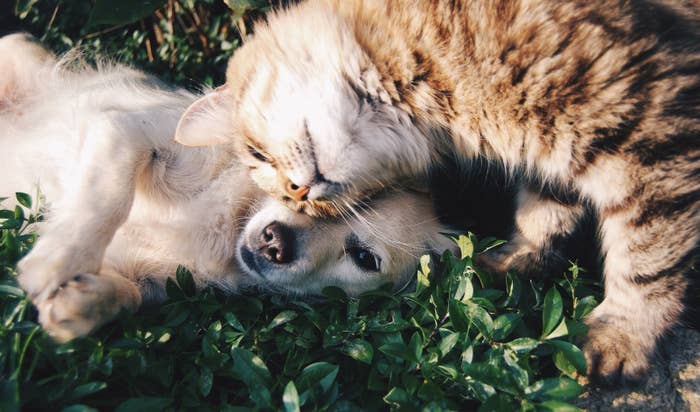8 Ways Your Garden Could Be Harming Your Pet (and Vice Versa)
Pets have always brought love and joy into our homes for children and adults alike, providing companionship and a way to connect with nature in our busy lives. These days in the social media era they're more widely celebrated than ever, with countless Instagram pages dedicated to the antics of cute and fluffy critters, and the rise of the 'fur baby' phenomenon for couples who choose not to have kids - not to mention pets as adorable additions to families who do.
When buying or adopting a pet for your household it's important to consider the impact your garden might have on your pet, and vice versa. Some plants are poisonous to cats and dogs, and many plants can be easily destroyed by your pet unless you carefully plan your garden out to prevent this.
Here are a few ways you can optimise your garden to work with your furry friends.
1. Your Plants are Toxic to Cats and Dogs
When planting for your garden, it's important to choose plants that won't make your dog or cat sick. Common plants that are toxic to dogs include hydrangea, tomato, aloe vera, daffodil, azelea, chrysanthemum and daisy. Many of these species as well as lilies, ivy, and poinsettia, are also toxic to cats.
By contrast, there are plants that have positive effects on animals. Catnip and catmint are obvious choices for cats, while mint, rosemary, and chamomile, all have calming or refreshing effects for dogs. To stay on the safe side, do your research before introducing new plants to the garden.
2. You're Not Providing Enough Shade or Shelter
It's always a good idea to provide your pet shelter from the elements, especially in unpredictable climates. Both cats and dogs will appreciate a place for them to take refuge from the sun and rain. Creating a space for your pet to retreat can involve placing a small tent or other type of shelter in your backyard with access to water.
3. Your Garden Beds are Easy to Dig Up
Digging might be perfectly natural behaviour for a dog - but there are many ways to minimise the destruction of your garden. There are a few ways to do this. One way is to plant shrubs around garden beds that pets will go around the plant bed rather than through.
Creating a barrier around your plants is ideal, especially for food plants that will be harvested. Using chicken wire or netting is useful for this purpose.
Having a designated digging area, like a sandbox, is another good idea for your dog, so he can enjoy his natural activity without compromising the state of your garden.
4. Your Plants are Too Delicate
Selecting hardy plants for your garden will ensure that you won't be left with nothing but bare soil and dried up foliage as a result of your pet. Some hardy plants that are good for a garden with pets include roses, marigolds, and most Australian natives.
5. Your Backyard isn't Secure
No one wants to lose their pet, so it's important to ensure fencing that is high enough to keep your pet safe and secure. Extending the fencing by adding barriers under the fence will ensure additional safety for your pet.
6. You Don't Have a Dedicated Waste Area
Dog waste and urine can harm your plants, so having a dedicated area for your pet to go when nature calls is a good idea, as well as making it easier for you to clean up after them.
7. You're Using Harmful Chemicals
Some garden chemicals pose a significant hazard to pets. Snail bait can be potentially lethal for dogs, and weed-killing chemicals can also pose danger - these sprays should be left to dry before dogs are allowed near the area.
8. Your Pet Isn't Trained for Your Garden
In addition to creating a garden that works with your pet, it's also a good idea to consider training your pet to prevent danger to your pet or your garden. Dogs can be trained to relieve themselves in a certain area, as well as to stay within certain spaces with the right combination of rewards and reprimands.
Cats and dogs are adorable, but is your garden safe for them?


